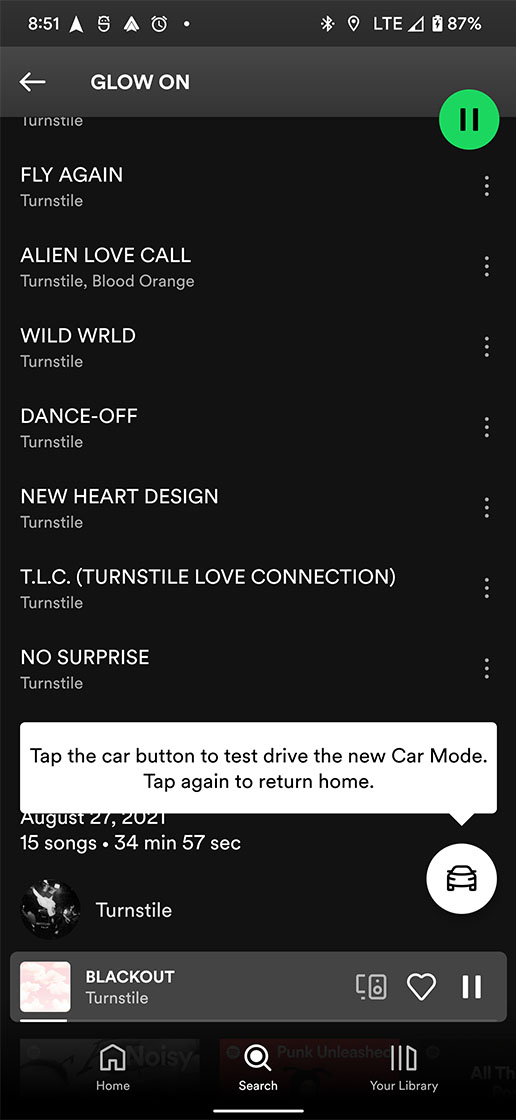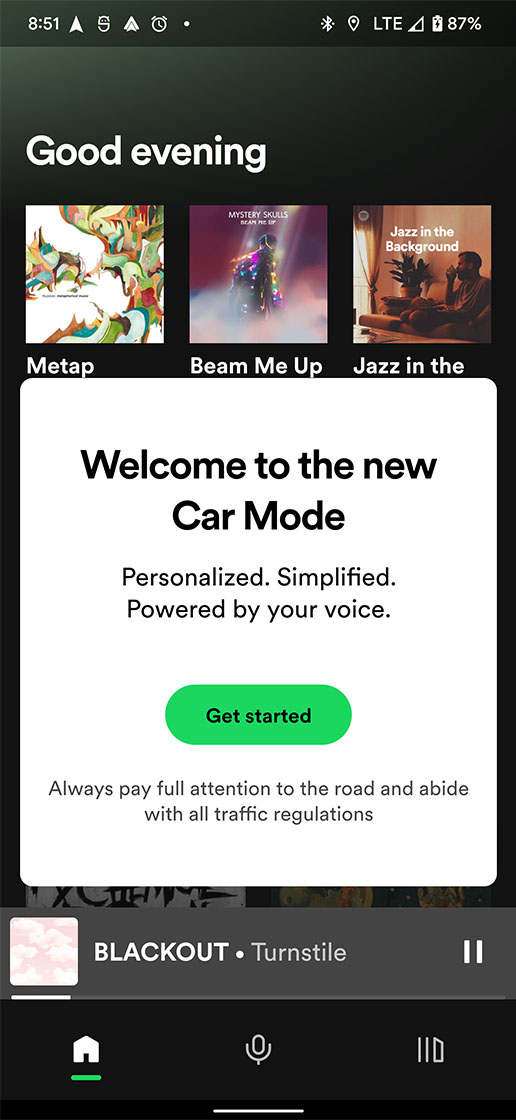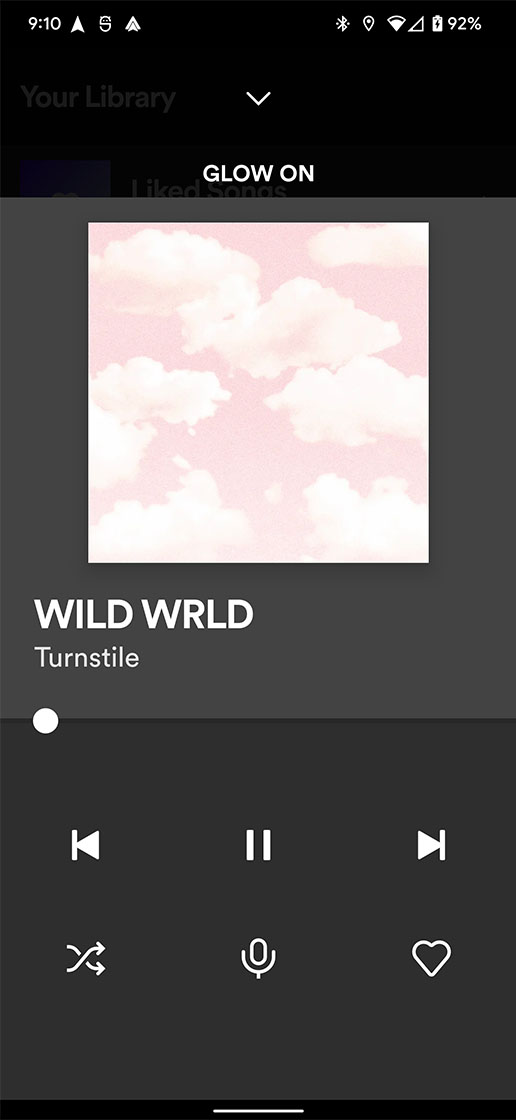Some Spotify users received prompts to test the app’s completely overhauled ‘Car Mode’ with a focus on simplified controls and voice activation.
The new Car Mode comes after Spotify killed the old ‘Car View’ feature in its mobile app last year. At the time, the music streaming giant said it was exploring other in-car experiences, but it wasn’t clear when those would arrive or what they’d be like.
Now, thanks to screenshots shared by 9to5Google (check the gallery below), we have a pretty good idea. First, the new Car Mode is accessible through a floating action button (FAB) that appears when users connect to a car audio system via Bluetooth.
Alongside the FAB, Spotify surfaces a bubble with text asking users to “test drive” the new Car Mode. 9to5 indicates the test isn’t fully rolled out and that it’s not clear if Car Mode is only available for Android, or if the iOS app will also be included.
When users tap the FAB, Spotify switches to the Car Mode interface, which looks a lot like the normal Spotify interface but bigger, making it easier to quickly see what’s on the screen and interact with it while driving.
Car Mode keeps Spotify’s three-button navigation bar but replaces the ‘Search’ button with a microphone (the Home and Library buttons remain unchanged). Users can tap the microphone to summon a voice control system to search for artists, songs, or playlists using speech.
Additionally, Car Mode revamps the playing screen with simpler, larger controls with play, pause, next song, previous song, shuffle, like and microphone buttons. Again, the interface should be easier to use at a glance than before.
Ultimately, the new Car Mode seems like a vast improvement over Car View, although I’ll reserve final judgement for when I actually get to try it myself. Moreover, Car Mode appears to still be in testing, so it’s possible Spotify could continue to improve on the interface.
Screenshots credit: 9to5Google
Source: 9to5Google
















